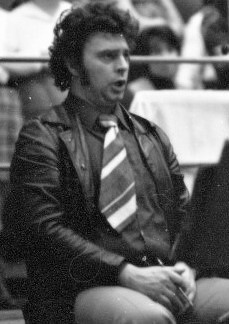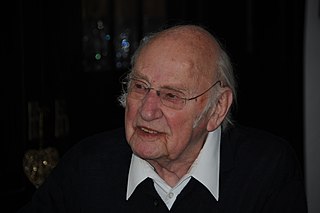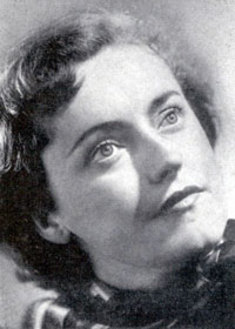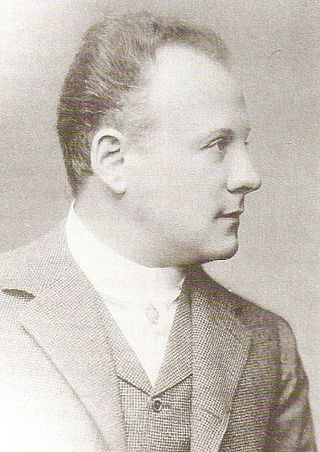
René Pape is a German operatic bass. Pape has received two Grammys, was named "Vocalist of the Year" by Musical America in 2002, "Artist of the Year" by the German opera critics in 2006, and won an ECHO award in 2009.
Gustav Neidlinger was a German bass-baritone, known as a performer of Wagner's villains, especially Alberich and Klingsor, from the early 1950s to the early 1970s. Born in Mainz, Neidlinger studied at the Frankfurt conservatory, where he was trained by Otto Rottsieper. He debuted in 1931 at the Stadttheater in Mainz, where he sang until 1934. In 1934 and 1935, he performed at the Stadttheater in Plauen, Sachsen. From 1935 to 1950, he was a member of the Hamburg opera, where In 1937 he took part in the world premiere of the opera Schwarzer Peter by Norbert Schultze. In 1950, he joined the Stuttgart Staatsoper, where he became very popular and was, in 1977, named an honorary member. In Stuttgart, he sang in Igor Stravinsky's The Rake's Progress. In 1956 he moved to the Vienna Staatsoper, where he had sung as early as 1941. He also sang at the Paris Opéra (1953–67) and at Covent Garden in London in tandem with the Stuttgart ensemble. He was honored with the title German Kammersänger in 1952.

Bernd Weikl is an Austrian operatic baritone, particularly known for his performances in the stage works by Richard Wagner. He also has written books and directed operas.

Franz Mazura was an Austrian bass-baritone opera singer and actor. He performed at the Bayreuth Festival from 1971 for 25 years and at the Metropolitan Opera for 15 years. He was made a Kammersänger in 1980 and an Honorary Member of the Nationaltheater Mannheim in 1990. He most often played villains and strange characters, with signature roles including Klingsor in Wagner's Parsifal. Mazura took part in world premieres, such as the double role of Dr. Schön and Jack the Ripper in the world premiere of the completed version of Alban Berg's Lulu at the Paris Opera in 1979, and as Abraham in Giorgio Battistelli's Lot in 2017. Two of his recordings received Grammy Awards. His voice was described as with dark timbre, powerful and like granite, with perfect diction. His acting ability was described as "well-supplied with vivid imaginative touches, whether deployed in comic roles or characters of inexorable malevolence. Mazura could achieve more impact with a lifted eyebrow or a belligerently thrust chin than many artists could with a ten-minute monologue." He had a long career, appearing at the Staatsoper Berlin the night before his 95th birthday.
Adrian Eröd is an Austrian operatic baritone. He is the son of composer Iván Erőd.
Ekkehard Wlaschiha was a German operatic baritone who specialized in Wagnerian "villains", such as Alberich, Klingsor and Friedrich von Telramund. He performed at the Bayreuth Festival and at the Metropolitan Opera, and left many recordings.
Wolfgang Schöne is a German bass-baritone in opera and concert.
Sieglinde Wagner was an Austrian operatic contralto, who could also sing mezzo-soprano roles.
William B. Murray was an American opera baritone, who performed in Europe from 1960 to 1990. According to the New Grove Dictionary of Opera he was "a stylish singer and a fine actor" who "excels in dramatic and character roles."
Hans Wallat was a German conductor, GMD in Bremen, at the Nationaltheater Mannheim, Theater Dortmund and Deutsche Oper am Rhein. A specialist for the stage works of Richard Wagner, he appeared at the Bayreuth Festival and internationally.

Elisabeth Schärtel was a German operatic mezzo-soprano and contralto. A member of the Cologne Opera from 1959 to 1967, she performed leading parts at major European opera houses and regularly at the Bayreuth Festival.

Leopold Demuth (real name Leopold Pokorny was a Moravian operatic baritone. He was celebrated in particular for his successful performances in works by Wolfgang Amadeus Mozart, Giuseppe Verdi and Richard Wagner.
Bent Norup was a Danish operatic heldenbaritone. He was a member of the Royal Danish Theatre and opera houses in Germany, and appeared internationally, especially in stage works by Richard Wagner, including his signature role Hans Sachs in Die Meistersinger von Nürnberg. He also performed in contemporary opera and in concert. He was appointed a knight of the Order of the Dannebrog.
Hans Günter Nöcker was a German operatic bass-baritone who was based at the Bavarian State Opera for decades, performing in several world premieres including Aribert Reimann's Lear, and also had an international career.
Heinz Imdahl was a German operatic baritone. A member of the Bavarian State Opera, he performed many leading roles at the Vienna State Opera, and appeared as Beethoven's Pizarro at the Teatro dell'Opera di Roma and Wagner's Hans Sachs at the Philadelphia Opera.

Johann Baptist Hoffmann was a German operatic baritone and voice teacher. A long-term member of the Berlin Court Opera, he performed leading roles in Europe, such as Verdi's Rigoletto and Wagner's Dutchman in Der fliegende Holländer. He took part in several world premieres in Berlin.
Hermann Wiedemann was a German operatic baritone and academic teacher. He was a long-term member of the Imperial Court Opera in Vienna from 1916, where he appeared as Faninal in Der Rosenkavalier by Richard Strauss 196 times, and as Beckmesser in Wagner's Die Meistersinger von Nürnberg 155 times. He was Beckmesser also in a recording from the Salzburg Festival 1937, conducted by Arturo Toscanini. He performed internationally at leading opera houses and festivals, such as the Teatro Colón of Buenos Aires and the Zoppoter Festspiele. He appeared in the world premieres of Wolf-Ferrari's I gioielli della Madonna in Berlin, Busoni's Die Brautwahl in Hamburg, and Lehár's Giuditta in Vienna.
Karl Kamann was a German operatic bass-baritone.
Gottfried Hornik is an Austrian operatic baritone and voice teacher. He was a member of the Vienna State Opera for 25 years and appeared worldwide in leading roles. His signature role was Beckmesser in Wagner's Die Meistersinger von Nürnberg. He was awarded the title of an Austrian Kammersänger.
Wilma Schmidt, also known as Wilma Schmidt-Liebethal, was a German operatic soprano. She performed for five decades in leading roles at the Staatsoper Hannover, and appeared as a guest at other opera houses and the Bayreuth Festival. Her broad repertoire included the Countess in Mozart's Figaro, Agathe in Weber's Der Freischütz, Elisabetta in Verdi's Don Carlo alongside Hans-Dieter Bader, Elisabeth in Wagner's Tannhäuser, and her favourite role, the Marschallin in Der Rosenkavalier by Richard Strauss.






